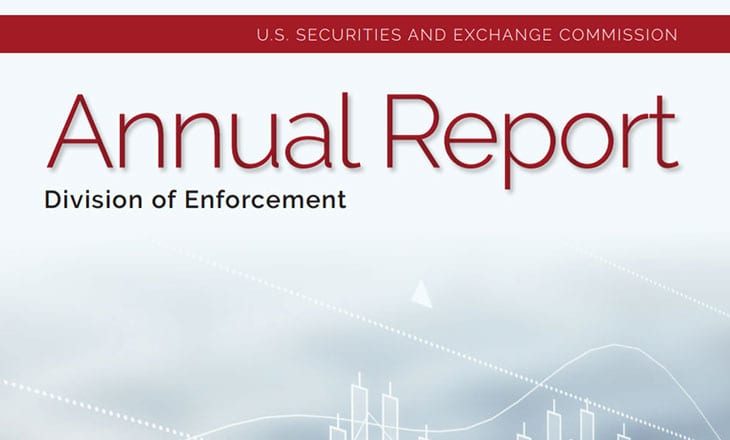The Securities and Exchange Commission (SEC) recently released its fiscal Annual Report for 2018, which outlined the five principles that will guide its assessment of its performance, but which also revealed an accelerated focus on digital assets, with a primary emphasis on Initial Coin Offerings (ICOs). The ICO space has been perceived as the “Wild West”, where promoters openly ignore rules and regulations that apply to other investments offered to the general public.
As a consequence, fraud has been pervasive in this arena. Some reports have purported that as many as 50% to as high as 90% of ICOs in the past two years could have been outright frauds. Over $14 billion has been raised through this “crowdfunding” method over this period, and a simple calculation would conservatively set potential global losses to victims of fraudulent ICOs in the range of $7 to $12 billion.
After outlining its five key guidance principles, the report is peppered with references to ICOs. One reporter actually took the time to count the number of instances where the term ICO was mentioned. The 2018 report has 20 mentions of ICO, while there were only four in 2017. Here are a few prominent ones:
- Led by the Cyber Unit, the Division emerged as a global leader in addressing misconduct relating to digital assets and initial coin offerings (ICOs).
- Given the explosion of ICOs over the last year, we have tried to pursue cases that deliver broad messages and have market impact beyond their own four corners.
- We shifted resources into market segments presenting emerging risks, including cyber threats and ICOs.
- The Division also remains focused on issues related to ICOs and digital assets. In just a few years, the prevalence of crypto-asset offerings, including ICOs, has exploded.
- In FY 2018, the Commission brought 20 standalone cases, including those cases involving ICOs and digital assets. At the end of the fiscal year, the Division had more than 225 cyber-related investigations ongoing.
As a general statement of its intent, the report goes on to say:
We have tried to pursue cases that deliver broad messages and have market impact beyond their own four corners. To that end, we have used various tools—some traditional, such as the Commission’s trading suspension authority, and some more novel, such as the issuance of public statements—to educate investors and market participants, including lawyers, accountants, and other gatekeepers. We believe these investor-protection efforts have been successful.
In other words, the SEC is determined in its pursuit of Initial Coin Offerings for law violations and for setting a standard for other global regulators to follow. The threat of fines and possible incarceration has dampened the momentum for this funding approach in the United States, to a degree, but promoters have quickly moved to more favorable jurisdictions, where oversight and compliance requirements are lax. Switzerland has often been mentioned in this regard.
